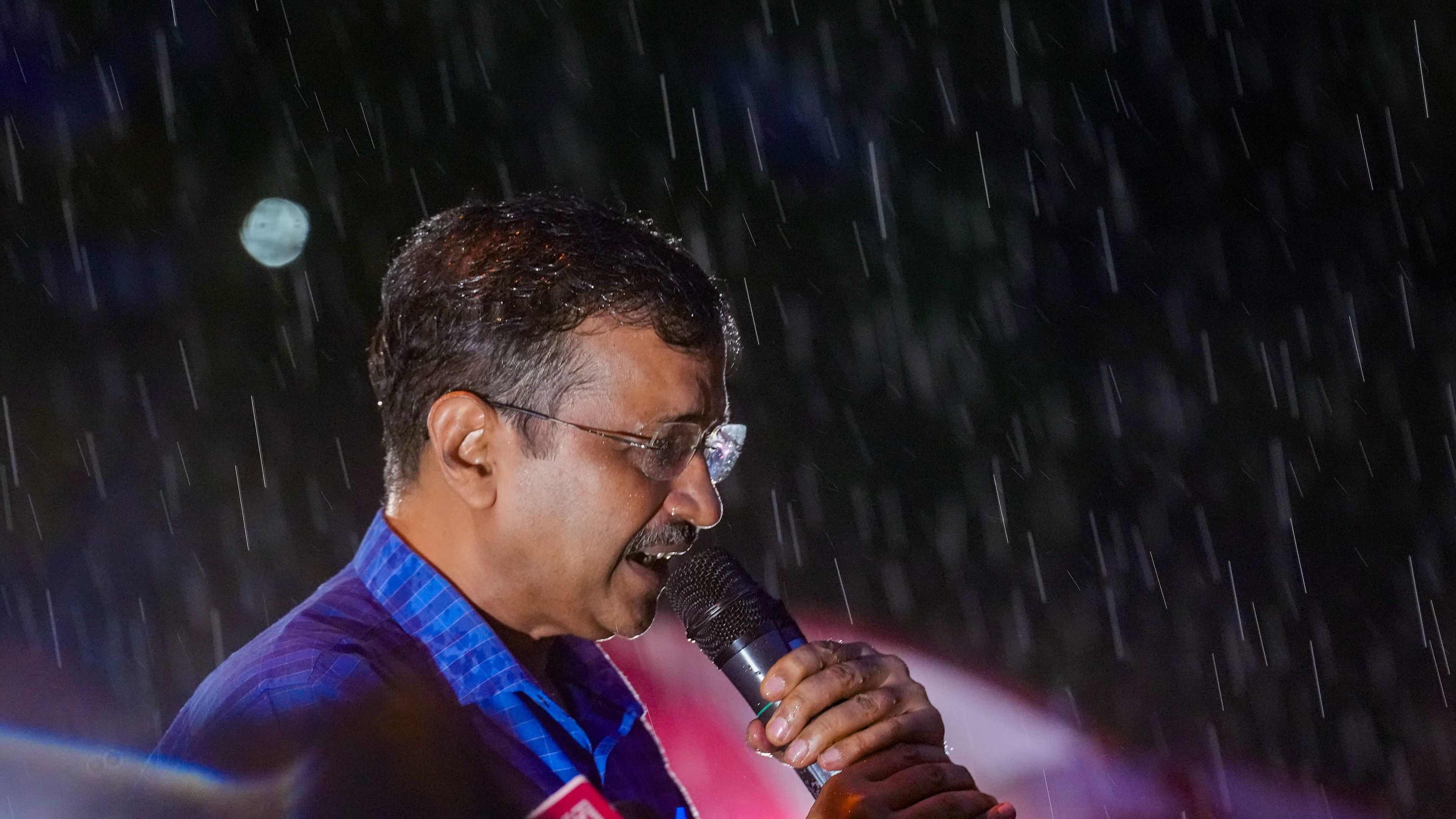
Delhi Chief Minister Arvind Kejriwal addresses supporters amid rainfall after walking out of the Tihar Jail, in New Delhi, Friday, Sept. 13, 2024.
Credit: PTI Photo
New Delhi: Depending on where one stands on the political divide, Arvind Kejriwal’s announcement on resigning as Delhi Chief Minister will be seen as an act of valiance or as a tactical move to boost the declining aura of an anti-corruption hero enmeshed in a graft case.
Kejriwal had resisted calls for resignation for the past six months while in jail, citing a “conspiracy” to break AAP and his government but it would appear intriguing that he chose to step down when the 56-year-old leader got regular bail and when it was only five months to go for Assembly polls.
He also does not want the momentum, if any, he accrues from the new plank to wither away and wants the Assembly polls to be advanced to November, three months before schedule. He has not given any reason for doing so except for getting the “certificate of honesty” at the earliest.
Leaders of Delhi units of Congress and BJP have already called his decision “gimmick” and “PR stunt” even as Kejriwal has sought to project it as a political fight where he is wronged by a regime, whose “cruelty will surpass” the British rule.
Kejriwal’s decision, which appeared to have come after taking into confidence senior leaders, comes at a time he believes all is not well in the AAP and its electoral performance during the Lok Sabha elections, was not up to the mark.
Known for rhetorical flourish when it comes to designing his political campaigning, as one saw from his India Against Corruption days, he is seeking to set a narrative to regain the trust of voters who appeared to have developed doubts about AAP’s anti-corruption template.
Though he has managed regular bail in the contentious Delhi excise policy case, it was not all good for Kejriwal as the Supreme Court disallowed him to sign files and visit his office or Secretariat, virtually making him a Chief Minister on paper.
Kejriwal anticipates questions on AAP’s delivery mechanism and knows that voters may extend it to him, which could adversely impact his vote catching ability. After all, he has lost the novelty factor with three terms and nine years in power.
Also, the anti-corruption labels of both Kejriwal and AAP are severely dented by the allegations. Deflecting the focus on the negatives, Kejriwal decided to step down to project an image of one who is not power hungry while believing that it would help him to talk new things.
His 36-minute address was a careful crescendo starting with a comparison with legendary freedom fighter Bhagat Singh, mentioning of Sita’s ‘agnipariksha’ in Ramayana and ending with the announcement.
While he mentioned his government’s performances in the health and education sector, it was not the highlight like it used to be during earlier occasions. This time, the emphasis was more on how honest he was.
He also sought to project that the case against him was not an isolated instance but part of a bigger design to entangle all Opposition Chief Ministers and mentioned cases against Karnataka Chief Minister Siddaramaiah among others.
